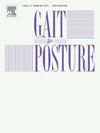Fatigue assessment in distance runners: A scoping review of inertial sensor-based biomechanical outcomes and their relation to fatigue markers and assessment conditions
IF 2.2
3区 医学
Q3 NEUROSCIENCES
引用次数: 0
Abstract
Background:
Fatigue manifests as a decline in performance during high-intensity and prolonged exercise. With technological advancements and the increasing adoption of inertial measurement units (IMUs) in sports biomechanics, there is an opportunity to enhance our understanding of running-related fatigue beyond controlled laboratory environments.
Research question:
How have IMUs have been used to assess running biomechanics under fatiguing conditions?
Methods:
Following the PRISMA-ScR guidelines, our literature search covered six databases without date restrictions until September 2024. The Population, Concept, and Context criteria were used: Population (distance runners ranging from novice to competitive), Concept (fatigue induced by running a distance over 400 m), Context (assessment of fatigue using accelerometer, gyroscope, and/or magnetometer wearable devices). Biomechanical outcomes were extracted and synthesised, and interpreted in the context of three main study characteristics (cohort ability, testing environment, and the inclusion of physiological outcomes) to explore their potential role in influencing outcomes.
Results:
A total of 88 articles were included in the review. There was a high prevalence of treadmill-based studies (n=46, 52%), utilising only 1-2 sensors (n=69, 78%), and cohorts ranged in experience, from sedentary to elite-level runners, and were largely comprised of males (69% of all participants). The majority of biomechanical outcomes assessed showed varying responses to fatigue across studies, likely attributable to individual variability, exercise intensity, and differences in fatigue protocol settings and prescriptions. Spatiotemporal outcomes such as stride time and frequency (n=37, 42 %) and impact accelerations (n=55, 62%) were more widely assessed, with a fatigue response that appeared population and environment specific.
Significance:
There was notable heterogeneity in the IMU-based biomechanical outcomes and methods evaluated in this review. The review findings emphasise the need for standardisation of IMU-based outcomes and fatigue protocols to promote interpretable metrics and facilitate inter-study comparisons.
长跑运动员的疲劳评估:对基于惯性传感器的生物力学结果及其与疲劳标记和评估条件的关系进行范围审查
背景:疲劳表现为高强度和长时间运动时成绩下降。研究问题:如何使用惯性测量单元(IMU)来评估疲劳条件下的跑步生物力学?方法:根据PRISMA-ScR指南,我们的文献检索涵盖了六个数据库,没有日期限制,直到2024年9月。采用了 "人群"、"概念 "和 "背景 "标准:人群(从新手到竞技选手的长跑者)、概念(400 米以上距离跑步引起的疲劳)、背景(使用加速度计、陀螺仪和/或磁力计可穿戴设备对疲劳进行评估)。对生物力学结果进行了提取和综合,并结合三项主要研究特征(队列能力、测试环境和纳入生理结果)进行了解释,以探讨它们在影响结果方面的潜在作用。其中以跑步机为基础的研究较多(46篇,占52%),仅使用了1-2个传感器(69篇,占78%),研究队列的经验各不相同,从久坐不动到精英级跑步者都有,且主要由男性组成(占所有参与者的69%)。所评估的大多数生物力学结果显示,不同研究对疲劳的反应各不相同,这可能归因于个体差异、运动强度以及疲劳方案设置和处方的差异。跨步时间和频率(37人,42%)和冲击加速度(55人,62%)等时空结果的评估更为广泛,其疲劳反应似乎具有特定人群和环境的特征。综述结果强调,需要对基于 IMU 的结果和疲劳协议进行标准化,以促进可解释的指标,并促进研究间的比较。
本文章由计算机程序翻译,如有差异,请以英文原文为准。
求助全文
约1分钟内获得全文
求助全文
来源期刊

Gait & posture
医学-神经科学
CiteScore
4.70
自引率
12.50%
发文量
616
审稿时长
6 months
期刊介绍:
Gait & Posture is a vehicle for the publication of up-to-date basic and clinical research on all aspects of locomotion and balance.
The topics covered include: Techniques for the measurement of gait and posture, and the standardization of results presentation; Studies of normal and pathological gait; Treatment of gait and postural abnormalities; Biomechanical and theoretical approaches to gait and posture; Mathematical models of joint and muscle mechanics; Neurological and musculoskeletal function in gait and posture; The evolution of upright posture and bipedal locomotion; Adaptations of carrying loads, walking on uneven surfaces, climbing stairs etc; spinal biomechanics only if they are directly related to gait and/or posture and are of general interest to our readers; The effect of aging and development on gait and posture; Psychological and cultural aspects of gait; Patient education.
 求助内容:
求助内容: 应助结果提醒方式:
应助结果提醒方式:


